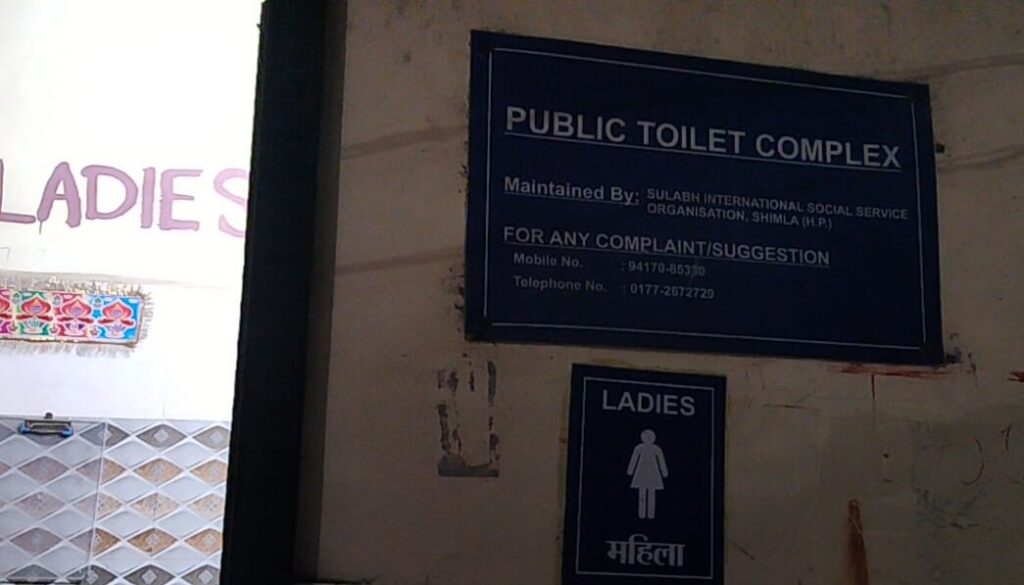Public Toilets: Struggle for Equality and Dignity Persists
3 min readShimla, Jan 06 Ritanjali Hastri:
In a disheartening revelation, the city’s much-touted initiative to break gender stereotypes and provide equal facilities for men and women seems to be falling short of its promises. Despite prominent signs proclaiming free urinal facilities for both genders, instances of female tourists being charged for using public restrooms have come to light.
One such incident occurred near the Auckland Tunnel washroom, where a female tourist from Jaipur was compelled to pay Rs. 5, raising questions about the state government’s sincerity towards its commitment to change traditional practices (Rivaz Badlenge). The situation is not isolated, as a similar practice was noted at public toilets near the city mall, close to the Khadi building.
The practice raises serious concerns about the safety and privacy of women. Having male attendants inside female restrooms to collect money is being criticized for breaching the fundamental right to privacy. The matter becomes even more critical considering the emotional distress it causes women, who often find themselves in embarrassing situations when they refuse to pay.
A misprinted contact number for complaints at public restrooms in [City Name] leaves women helpless, forced to pay for facilities without an avenue for redressal. This oversight not only compromises citizens’ dignity but also questions the city’s commitment to ensuring basic rights.

Resident Nidhi expressed her discomfort, stating, “If we refuse to pay, they start arguing at a very high pitch, making the situation embarrassing for us.” The situation becomes more alarming when the facilities are used during the night and women are forced to share the space with male attendants.
A female janitor at the Lakkar Bazar Toilet justified the practice, stating, “It’s women’s free will; if they feel like it, they pay; otherwise, we don’t ask them.”
Responding to the issue, MC Health Officer Neeraj assured, “Since the matter has been brought to light, we will certainly inspect, and if found true, will take action against the contractor.We have instructed them to avoid male janitors in female toilets as well.”
The incident prompts a deeper reflection on the city’s commitment to gender equality and whether the provision of separate facilities for men and women is merely symbolic or genuinely rooted in ensuring the safety and dignity of all citizens. The story calls attention to the need for empathy and more thoughtful consideration when implementing such initiatives, urging authorities to address the concerns and uphold the principles of gender equality and privacy.

The issue goes beyond restroom fees; it raises concerns about the overall agency of women in society. The hesitancy to assert one’s rights and challenge the status quo perpetuates a system where unjust practices prevail.
In a city striving for progress and equality, the onus lies not only on authorities to rectify the situation but also on society to foster an environment where every individual, irrespective of gender, feels empowered to claim their rights.






